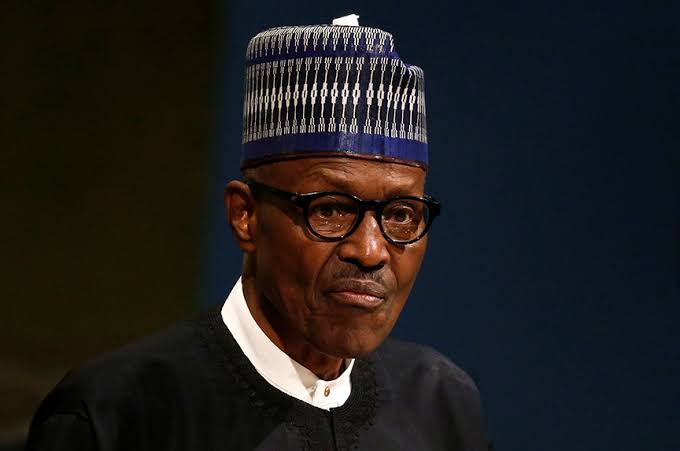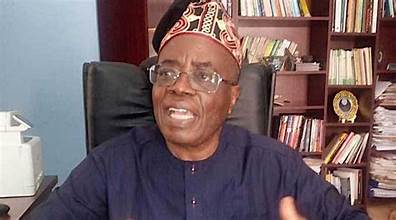Political Issues
Open Latter To Baba Buhari: Open Latter To Baba Buhari On The Need To Avert Nigeria From Going into Depression -By Abba Dukawa

Officially Nigeria has entered its second recession in five years as official figures published on Saturday show that the economy shrank again in the third quarter of this year. The National Bureau of Statistics, in its Gross Domestic Product report for Q3, said the GDP, the broadest measure of economic prosperity, fell by 3.62 in the three months to September.
Last month, the World Bank revised its 2020 forecast for Nigeria’s economy to -4.1 per cent from its previous projection of -3.2 per cent, saying the country’s near-term outlook was subject to “considerable uncertainty”. The Global bank had said in June that the collapse in crude oil prices, was expected to “plunge the Nigerian economy into a severe recession, the worst since the 1980s coupled with the COVID-19 pandemic.
Unfortunately within three years Nigeria experience two recessions because Covid 19 has puts global economics in uncertainty again, Nigeria’s economy is being caught in the cross-hairs. Above all, Nigeria must stop borrowing. Now is not the time to trade blames but to focus on ways to manage the situation and need for administration to “swallow its pride, and accept its limitations, so that they can open their minds to ideas, without caring who the messenger is.
The recession could have been avoided if administration had been listened to nation’s economist and other concerns Nigerians advise during first recession. the recession could have been avoided if administration diversifying the economy as Federal government to develop the country untapped mineral. Despite this huge opportunity still domestic mining industry is underdeveloped, leading to Nigeria having to import minerals that it could produce domestically.
The provocative policies of the previous and present administration over dependence on oil resources as a source of foreign exchange earnings to the detriment of agriculture also puts pressure on the nation source of foreign income. The recession could have been avoided if administration diversifying the economy by formulating policy toward developing the country untapped mineral.
The recession could have been avoided if administration had cut down on the cost of governance during first recession , listened to nation’s economist and other concerns Nigerians advise.
There is no denying the fact that the country is currently facing a financial crisis. However, a depression is least likely in the Nigerian situation, as experts predict that most countries will come out of the current crisis by 2021 and at most by 2022.
On the optimistic side of things, if the government does the needful in bailing out industries, if oil prices keep rising in view of budget cuts.Let the executive and legislative arms expunged non conventional allowances, estacodes, welfare packages, and new vehicle purchases from the proposed 2021 budget. if the government further diversifies the economy and also implements the Orosanye report or at least a better modified version of it, then the recession might be short lived.
Lack of clear economic policies and weak institutions to blockages mismanagement and Corruption which still subsists as one of the greatest challenges facing Nigeria with .
Almost 6 years the record presented by global body Transparency International on the country’s perceived corruption outlook. From 2015 till date Transparency International’s Corruption Perception Index (CPI) still gave Nigeria a low ranking out of 180 countries surveyed. The reports are clear reflection of neither improvement nor retrogression to that of year after year where marginal improvement was recorded. This, therefore, elicits curiosity on what the missing link is between the efforts of the government against the graft and public what the perception is.
At the same time he received the report another heart breaking investigation reports published by online medium Premium Times revealed how Fashola’s ministry illegally paid ₦4.6BN into officials‘ personal accounts. It is clear violation of extant law. Payment of payments of monies into private account is clearly violates chapter 7, section 701 of the financial regulation of the country. Section 713 of the same chapter also says under no condition should personal money be paid into the government’s bank account “nor shall any public money be paid into a private bank account. Even though Ministries and Agencies are compelled by the provision “to operate only three bank accounts as follows: salary account, overhead cost account and revenue account” as “no other bank account shall be allowed without the express approval of the Accountant-General.
It was under the watchful of our once fearful General Muhammadu Buhari the level of corruption in Nigeria has reached a height whereby it can only be curbed when these agencies rise up to the occasion to prosecute offenders irrespective of their political affiliations.
Henceforth fighting corruption proved too difficult for the administration to achieve. Therefore Nigerians are alienated, angry and fed up but in real sense the corruption is fighting back as there is not much pointer supporting the administration efforts in its fight. Unfortunately, the anti-corruption agencies are more like toothless dogs that can only bark but cannot bite
Dukawa, public affairs commentator, writes from Kano . Can be reached at abbahydukawa@gmail.com.










